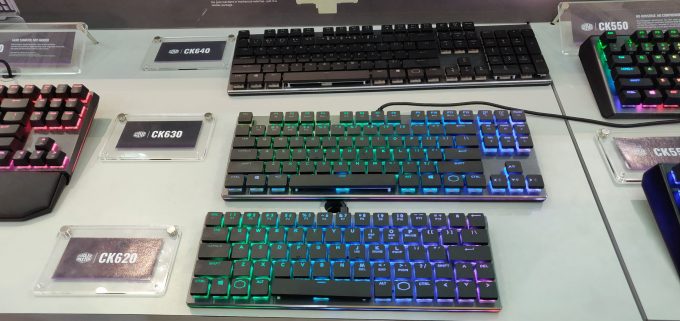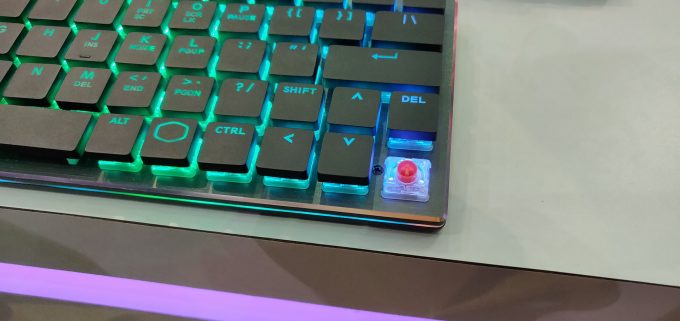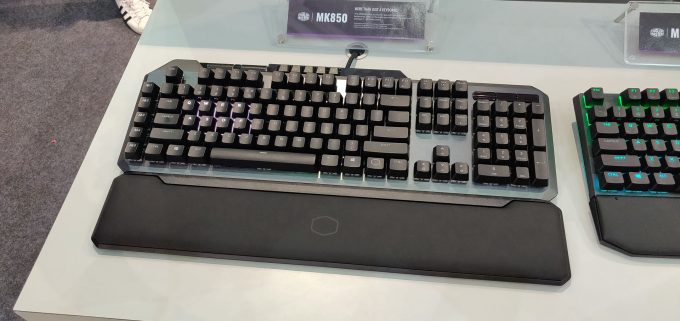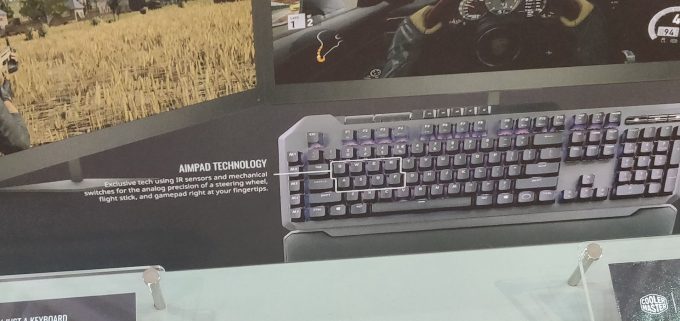- Qualcomm Launches Snapdragon 4 Gen 2 Mobile Platform
- AMD Launches Ryzen PRO 7000 Series Mobile & Desktop Platform
- Intel Launches Sleek Single-Slot Arc Pro A60 Workstation Graphics Card
- NVIDIA Announces Latest Ada Lovelace Additions: GeForce RTX 4060 Ti & RTX 4060
- Maxon Redshift With AMD Radeon GPU Rendering Support Now Available
Cooler Master Shows Low Profile & ‘Gamepad’ Keyboards At Computex 2018
Keyboards have had a little bit of stale period lately. Mechanicals took over very quickly and I have to say, we’re better off as a result, but then RGB took over, and it’s getting a bit much. When you RGB all the things, what’s left to innovate and change? Fortunately, there is still room for improvement, even with the humble keyboard.
CHERRY, the supplier of the famous MX switches that are used extensively across most keyboards, is still producing new products. They’ve had Real Key analog switches, ultra-responsive keys, but more recently started to experiment with low-profile keys – or at least, as low-profile they can make a mechanical… but still keep the RGB factor.
At Cooler Master’s stand was a variety of these new low-profile switches in 3 different keyboards, ranging from the full size CK640, to the TKL CK630, to what is probably a 75% keyboard, the CK620.
These use the new low-profile RGB switches, and I must say, look very inviting – it’s like the uniformity of a laptop but with the feel of a mechanical – definitely something to get in for review when released later this year. The key caps use the same + pattern as normal CHERRY keys, but due to the reduced travel distance, getting replacements might be a bit more of a chore – we’ll have to wait and see how popular these keys get.
On the top-end we have something that’s been slowly cropping up as an idea, and that’s height sensitive keys, meaning keys that are less digital and more analog in behavior. The idea is that keyboards are great for instant action, but they don’t do subtle. Have you ever tried to play a racing game with a keyboard?
By putting infra-red sensors to do height detection inside the keys, you can infer how far a key is pressed and turn that into the equivalent of gamepad input, and thus be able to do soft and sharp turns in driving games, or even walk or run at different speeds in FPS – hell, even control how far you lean around corners.
These IR sensor keys make up Cooler Master’s Aimpad technology, being released in the new MK850 keyboard. It’s probably safe to say that a lot of this will depend on the software, and more importantly, how a game will behave around such multi-input systems. In the past, some games have locked out one device in favor of another, such as disabling a keyboard when a game pad is used/detected (I’m looking at you Skyrim). The idea isn’t new, as a number of Kickstarter projects have been attempted in the past, so it’ll be interesting to see if CM has managed to work out the kinks and actually make a keyboard that works as intended.








